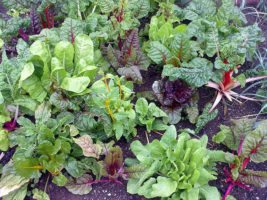

Environment
20 Simple Tips for a Greener Lifestyle
Having an environmentally-friendly home can help save on utility bills and reduce your carbon footprint. Owning an economical car can use less gas and release fewer emissions. But have you thought about your overall lifestyle? Implementing green practices into your everyday routine can play a huge role in the health of the environment.
Let’s take a look at a few simple things you can do:
1. Recycle VHS Tapes
The plastic and film used in your old VHS tapes can be recycled and used to produce other things, reducing the amount of plastic produced inorganically. It’s simple to convert VHS tapes into a more modern format, and it will save space in the basement.
2. Take Shorter Showers
Don’t wait for the water to heat up before hopping in the shower. Also, quickly lather and get out, so you can reduce water consumption. This is particularly important if you live in an area affected by drought.
3. Walk More Frequently
If you only live a couple of miles from work or the grocery store, walk instead of drive. You’ll get your exercise and avoid emissions of any kind.
4. Purchase a Recycling Bin
When you sign up for garbage disposal with the city, sign up for a recycling bin as well. It costs just a few more dollars per month, but it gives you an opportunity to decrease the mountains of waste in our landfills.
5. Utilize Reusable Bags
The next time you go shopping, spend an extra dollar or two on reusable shopping bags. Bring these with you whenever you go shopping to reduce the use of paper and plastic bags.
6. Switch to All-Natural Cleaners
You’d be surprised to learn how many chemicals your everyday cleaning supplies emit. Switching to natural ingredients like baking soda, vinegar, and lemon will protect your home from these toxins.
7. Plant Drought-Resistant Greenery
Plants like cactus and succulents need very little water, but will give your yard the beautiful greenery it deserves. You might also choose to remove your grass in favor of wood pellets and other drought-friendly landscaping.
8. Reduce Meat Intake
If you like to eat meat, try to limit your consumption to just a couple of times per week. This will save you money and help protect wildlife.
9. Shop Secondhand
There’s no shame in purchasing clothing that’s already been worn or picking up a used recliner at a thrift store. This saves landfills and lessens energy and waste from manufacturers.
10. Boycott Bottled Water
Use a water purifier on your kitchen faucet if you don’t like the taste of your tap water, and use refillable water bottles instead.
11. Salvage Cell Phones
It’s tempting to throw broken cell phones away, but doing so can lead to toxins and chemicals being released into the environment, so recycle them instead. Some phone companies will even purchase your old cell phones for a few dollars in order to promote the practice of recycling.
12. Use a Surge Protector
Save energy and protect your home from spontaneous fires.
13. Change Your Beauty Products
The beauty industry is one of the most harmful industries in the world. Their products are full of toxins and chemicals. You can support greener production by purchasing from manufacturers who deal with organic products.
14. Download Apps
Technology makes it easy to go green with apps like eEcosphere, which connects you with information and people interested in the movement. There’s also Buycott, which helps you avoid businesses that don’t care about the environment.
15. Recycle Rain Water
If you live in an area that gets a lot of rain, put out rain barrels for collection. You can use this water for your plants and lawn.
16. Switch to CFLs
Compact fluorescent lights are much more efficient than traditional light bulbs because the energy goes more to light than heat, meaning there’s less wasted energy.
17. Join the Sharing Economy
Young people are all about sharing nowadays, which is having a positive effect on the environment. They share everything from lodging to transportation, which limits their carbon footprints extensively.
18. Eat Local
Purchase fresh produce and other products from local farms and businesses. The closer the products are to home, the less they have to travel to get to you. That means fewer emissions from transportation vehicles.
19. Support Local Businesses
The same concept applies here. When the travel is minimal for products and services, it supports a cleaner environment.
20. Teach Your Children
Help your children understand the importance of making eco-conscious decisions. If you teach them young, they’ll make greener choices consistently, which could lead to a generation that’s focused on sustainability.


 Environment11 months ago
Environment11 months agoAre Polymer Banknotes: an Eco-Friendly Trend or a Groundswell?

 Features10 months ago
Features10 months agoEco-Friendly Cryptocurrencies: Sustainable Investment Choices

 Features11 months ago
Features11 months agoEco-Friendly Crypto Traders Must Find the Right Exchange

 Energy10 months ago
Energy10 months agoThe Growing Role of Solar Panels in Ireland’s Energy Future





























